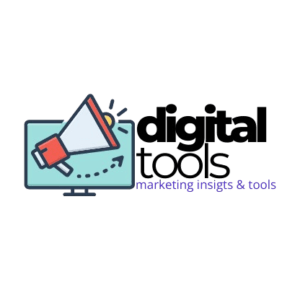In recent years, tech in digital marketing has evolved at an astonishing pace, changing how businesses engage with their audiences and convert leads into loyal customers. The rise of artificial intelligence (AI), automation, data analytics, and machine learning has created a dynamic environment where staying updated is not just an advantage—it’s essential for success.
This article delves deep into how tech in digital marketing has transformed the landscape and explores emerging trends that will shape the future. Whether you’re a seasoned marketer or a business owner, understanding these changes can help you stay competitive in the fast-evolving digital space.
Table of Contents
The Early Days: How Tech First Entered Marketing
To appreciate where we are today and where we’re heading, it’s important to understand the starting point. In the early days of the internet, tech in digital marketing primarily revolved around email campaigns, basic websites, and the first iterations of search engine optimization (SEO). Marketers mainly relied on manual processes and basic tools to reach their target audiences.
Key Innovations in Early Tech:
- Email Marketing: One of the first digital marketing tools. Initially used for newsletters and promotional content.
- Banner Ads: Visual ads placed on websites, these were the beginnings of online advertising.
- Basic SEO: Search engines began ranking content based on keywords, which led to the birth of keyword optimization.
These initial advancements may seem elementary today, but they laid the foundation for the sophisticated techniques we now use.

The Current Landscape of Tech in Digital Marketing
Today, tech in digital marketing has moved beyond simple tools and evolved into an advanced ecosystem powered by data, AI, and machine learning. These innovations have allowed marketers to understand their audience better, create personalized experiences, and automate time-consuming tasks.
Artificial Intelligence and Automation
The most impactful development in recent years is the integration of AI. AI allows marketers to analyze vast amounts of data quickly and efficiently. It can also predict consumer behavior, optimize ad campaigns, and improve customer service through AI-powered chatbots.
- AI in Advertising: Platforms like Google Ads and Facebook Ads use AI to automatically optimize campaigns based on performance data, helping marketers maximize their ROI.
- Chatbots: AI-powered chatbots provide 24/7 customer service, ensuring that users get immediate responses to queries, improving engagement and satisfaction.
- Predictive Analytics: AI algorithms can predict which leads are most likely to convert, allowing marketers to focus their efforts on high-value prospects.
Data Analytics: The Fuel of Modern Marketing
Data is the cornerstone of tech in digital marketing. Modern marketers have access to more data than ever before, from website traffic and social media interactions to customer purchase history and behavior patterns. This wealth of information allows for more targeted and personalized campaigns.
- Customer Segmentation: Advanced data analytics tools can segment customers based on demographics, behaviors, and preferences, allowing marketers to deliver highly personalized content.
- A/B Testing: Marketers can use data to test different strategies, headlines, and designs to determine what resonates best with their audience.
- Attribution Modeling: This helps marketers understand the customer journey across multiple touchpoints, allowing them to optimize channels that contribute most to conversions.
Personalization: A New Standard in Digital Marketing
Consumers today expect personalized experiences. Tech in digital marketing has made it easier to deliver tailored content to the right audience at the right time. Personalized marketing is no longer optional—it’s expected.
- Email Personalization: Beyond addressing customers by name, marketers can send highly relevant content based on browsing history, past purchases, and preferences.
- Dynamic Content: Websites and ads can change dynamically based on the user’s behavior and preferences, ensuring a more engaging experience.
Social Media: The Game Changer
Social media platforms have revolutionized how brands connect with their audience. New tech has made social media marketing more strategic, measurable, and effective.
- Social Listening Tools: These tools analyze conversations around a brand or product, giving marketers valuable insights into consumer sentiment.
- Influencer Marketing: Tech makes it easier to identify influencers who align with a brand’s values, expanding their reach to new audiences.
- AR and VR in Social Media: Augmented Reality (AR) and Virtual Reality (VR) are becoming popular, allowing users to engage with brands in more immersive ways.

What to Expect: Emerging Trends in Tech for Digital Marketing
The future of tech in digital marketing promises even more exciting developments. Here’s what you can expect to shape the industry in the coming years:
1. The Rise of AI-Driven Content Creation
AI will continue to revolutionize content creation. Tools like GPT-4 and Jasper AI already assist marketers in generating high-quality content, from blog posts to social media updates. As AI becomes more sophisticated, it will likely take over some aspects of content creation, allowing marketers to focus on strategy and creative input.
- AI-Generated Content: AI tools will be able to create personalized content for each user, adapting the tone and message based on user data.
- Voice Search Optimization: With the growth of voice-activated devices, optimizing content for voice search will become critical.
2. Hyper-Personalization Powered by Data
Personalization will reach new heights as marketers gain access to more granular data. Expect hyper-personalized marketing strategies that cater to the unique preferences of individual users, delivering tailored messages and experiences that make customers feel valued.
- Real-Time Personalization: Marketers will deliver experiences in real-time based on a customer’s immediate behavior, location, and preferences.
- Behavioral Marketing: By analyzing past behavior, brands will be able to predict future actions and tailor marketing campaigns accordingly.
3. Increased Integration of Augmented Reality (AR) and Virtual Reality (VR)
The integration of AR and VR in digital marketing is set to skyrocket. These immersive technologies will allow brands to create more engaging, interactive experiences, particularly in industries like retail, real estate, and travel.
- Virtual Try-Ons: Retailers can allow customers to virtually try on clothes, makeup, or accessories.
- AR-Enhanced Shopping: Brands will use AR to offer enhanced shopping experiences, allowing users to visualize products in real-life settings before making a purchase.
4. Blockchain and Data Privacy
With growing concerns around data privacy, blockchain technology may play a crucial role in securing user data. Blockchain can provide transparency and control over data, building trust between consumers and brands.
- Data Security: Blockchain ensures that customer data is encrypted and secure, reducing the risk of breaches.
- Transparent Ad Campaigns: Blockchain can help verify ad performance data, ensuring that marketers get accurate and transparent metrics.
5. Automation and Smart Workflows
Automation will continue to streamline marketing workflows, freeing up time for more creative tasks. From automated email sequences to fully integrated customer relationship management (CRM) systems, automation will become the backbone of tech in digital marketing.
- Smart Campaigns: Automation platforms like HubSpot and Marketo will help businesses create intelligent marketing campaigns that adapt based on customer interactions.
- AI-Powered CRM Systems: These will analyze customer data to suggest the best next steps, whether it’s sending a personalized email or initiating a follow-up call.

The Challenges of Keeping Up with Tech in Digital Marketing
With all these advancements, staying on top of the latest trends can be challenging. Marketers need to invest in ongoing education and adaptability to remain competitive. Moreover, while technology offers incredible benefits, it’s essential to balance automation and personalization with a human touch.
- Continuous Learning: Marketers must stay updated on new tools and technologies. This might involve taking courses, attending webinars, or staying connected with industry thought leaders.
- Human-Centric Marketing: No matter how advanced tech in digital marketing becomes, consumers still crave authentic, human connections. Marketers should never lose sight of this.
Conclusion
The evolution of tech in digital marketing shows no signs of slowing down. With AI, automation, and data analytics leading the charge, the future promises even more personalized, efficient, and engaging ways to connect with consumers. Marketers who embrace these trends early will be well-positioned for success in this fast-paced industry.
As we move forward, one thing is clear: tech in digital marketing will continue to shape the way brands interact with their audiences. By staying adaptable, informed, and consumer-focused, businesses can leverage these technologies to not only meet but exceed customer expectations.


I am extremely inspired along with your writing abilities as neatly as with the layout for your blog. Is that this a paid theme or did you modify it your self? Anyway keep up the nice high quality writing, it’s uncommon to peer a nice weblog like this one today!